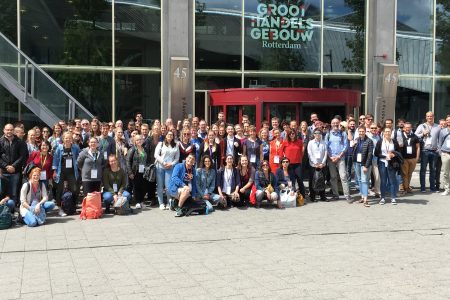The CHANGE towards open science
Two days ago Leiden University launched its Academia in Motion transcript, published by the Leiden Recognition and Reward steering group. One of the pillars of this initiative is ‘Transparency’, but how can we make this pillar work best?
"Open Science is just science done right" (anonymous)
Since 2013, reform movements under the umbrella term of ‘open science’ have emerged to improve standard scientific practices and scientific credibility, and increase the accessibility of research data. As a result, funders, reviewers, journal editors, and universities have increased their demands for researchers to be as open, transparent, and FAIR (Findable, Accessible, Interoperable, Reusable) as possible in all academic work. Leiden University, for instance, has trialed and adopted a full open access policy; it requires a data management plan before the start of each new research project; and publication packages are uploaded to an accessible repository after publication. These developments show that the principles of open science have gained importance and that the research culture is starting to change. And although most researchers appreciate the values of this movement, even doing the bare minimum of open science requires them to take the time to adapt their workflow and learn new skills. And what is the one thing researchers often lack? Exactly.
The necessity of research support
Researchers shouldn’t have to learn to adapt to this changing research landscape on their own. It puts an unfair amount of pressure on them, which can cause developments to slow down or even fully stagnate. Moreover, each researcher will inevitably have a different journey and will teach themselves different best practices, which conflicts with the open science concept of increased collaboration. To achieve a level of uniformity and shared morals, research support is essential in the open science movement and needs to be prioritized as an open science initiative in itself.
Paving the way to universal open practices
Research support exists and takes many forms. It can be organized on a broader level, where (inter)national projects create infrastructure and community standards that transform theoretical values into practical recommendations (e.g., the European Open Science Cloud). Such projects are largely still in progress, but show promise for a (near) future with less time-consuming and more universal open practices. A positive development at this broader level is the recent grant launched by NWO (‘Open Science Fund’), which emphasizes how open science practices are becoming more important and rewarding.
Local research support
A more local form of research support is organized at libraries (e.g., the Centre for Digital Scholarship), which provide materials that researchers can use to educate themselves, ranging from static sources of information to interactive workshops. In addition, local communities such as the Open Science Community Leiden facilitate researchers in discussing their personal experiences and struggles with open science and may help motivate them to prioritize open and responsible research practices.
The data steward
The research support landscape is still developing. An example of this is the emergence of the data steward, a direct contact person for all questions regarding open science and FAIR data management. Until now many, but not all, universities have started developing data stewardship either at the university-wide or faculty level, though training for this task is still largely informal and on-the-job.
Total Openness Score
With formal, standardized infrastructure still developing, it is the local initiatives that currently have the most power to motivate new research groups to adopt open science practices. Recently, researchers at the CHANGE Leiden Research Platform worked on an ‘open science impulse’ to increase open science practices in their standard workflow. Through brainstorm sessions, we determined the desired research support and the products necessary to address these needs. One of the products we developed is a scoresheet of possible practices researchers can implement at each phase of their research cycle. This scoresheet allows researchers to assess the openness of their research project through the generated ‘Total Openness Score’, which they can use to determine which steps they can take in a later project. We believe that it is accessible, motivating, and easy-to-use products like this that will help lower the bar for open science practices and ease the burden on researchers in a time where these structures are not yet in place on a larger scale. In addition, investing in an open science workflow can emphasize a feeling of community through the discussion of open science and the opportunities it creates.
The open science future
Small open science initiatives such as these can be a great way to get researchers ready for the open science future. However, it is not only funding and support that will help to advance open science. The recognition and valuation of open science practices at large is an important step for universities as well. Truly adopting open science principles in the scientific community as a whole is a culture change, and some long-standing customs will need to change accordingly. The DORA agreement and Leiden manifesto for research metrics already recognize some of these developments, but there is still a long way to go. As young academics, we do hope that we will experience these changes first-hand, and that in our research careers ‘open science’ will be just ‘science’.






